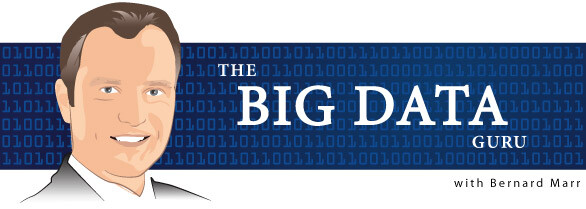
Data analysis and chocolate cake? Cookies and data visualization?
They don’t seem to have much in common — except that they might both show up at a board room table — but being an effective data scientist and a consummate pastry chef have more in common than you might think.

Data analysis and chocolate cake? Cookies and data visualization?
They don’t seem to have much in common — except that they might both show up at a board room table — but being an effective data scientist and a consummate pastry chef have more in common than you might think.
In fact, in order to be successful, they have to follow the same essential steps. It’s just that one is creating wonderful cakes and deserts while the other is providing insights from data.
Approach your data like a pastry chef.
If you’ve ever watched a great chef at work, you’ll notice that they have a very specific set of steps they perform, no matter what they’re creating. Those steps are equally important for someone whipping up a good data analysis.
Here’s what I mean.
- As a chef, you must know what you want to create/bake before you start. A good chef always has a plan before she starts, whether that means reading the recipe or strategizing how she will create a new one. For a data scientist, this is your analysis strategy.
- Collect your ingredients and make sure they are of the highest quality. Your ingredients for analysis are your data — and ensuring the best quality is paramount. Just like with a cake is only as delicious as its ingredients, your analysis will only be as good as your data.
- Mix all the ingredients together and cook / bake the ingredients following the recipe. For data, this is your analysis stage. You don’t want to switch recipes in the middle of the process any more than you want to change your analysis strategy midway through your analysis.
- Taste. While you can’t taste your data, you do want to check the end result — is it right and telling you what you wanted to know? A good chef would never serve food he hadn’t tasted, and neither should you serve up data you haven’t verified.
- Plate it up beautifully to serve. Ever notice how much better beautiful food tastes than food that’s just been slopped on the plate? Your presentation and visualization of your data is just as important to ensure that the end user can understand and use the results. (In other words, leave the pie to the pastry chefs.)
- Make sure the customer is enjoying it! In a fine establishment, the chef will often walk around and check that the customers are enjoying their meal. Adopt the same mindset with your end users, checking for the usefulness of your data and analyses and ensuring that people use the data to make better decisions.
Baking is a scientific and precise pursuit, and data scientists can learn a great deal from the all important mise en place or preparation and strategy that goes into creating the most compelling confections.
It’s true that your data might not go over as well as a warm cookie or elegant three-layer cake, but by emulating the steps that go into making those delights, you’ll be on the way to making sure your results are just as satisfying.
As always, thank you very much for reading my posts. You might also be interested in my new book: Big Data: Using Smart Big Data, Analytics and Metrics To Make Better Decisions and Improve Performance
You can read a free sample chapter here.
For more, please check out my other posts in The Big Data Guru column and feel free to connect with me via:
Twitter, LinkedIn, Facebook, Slideshare and The Advanced Performance Institute.